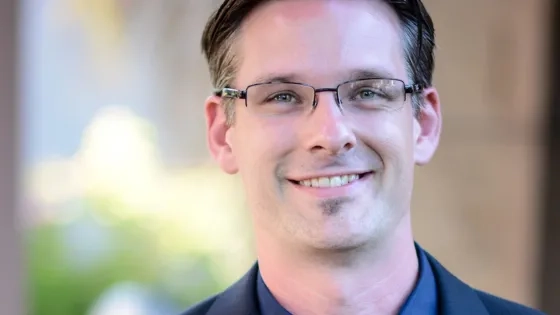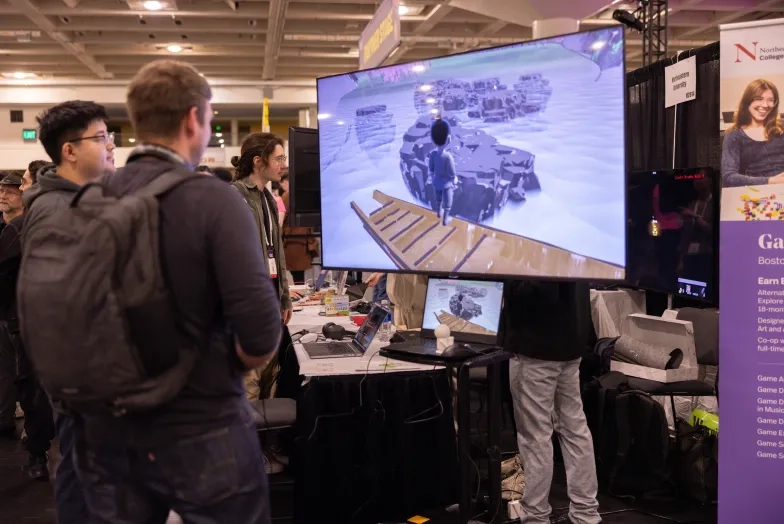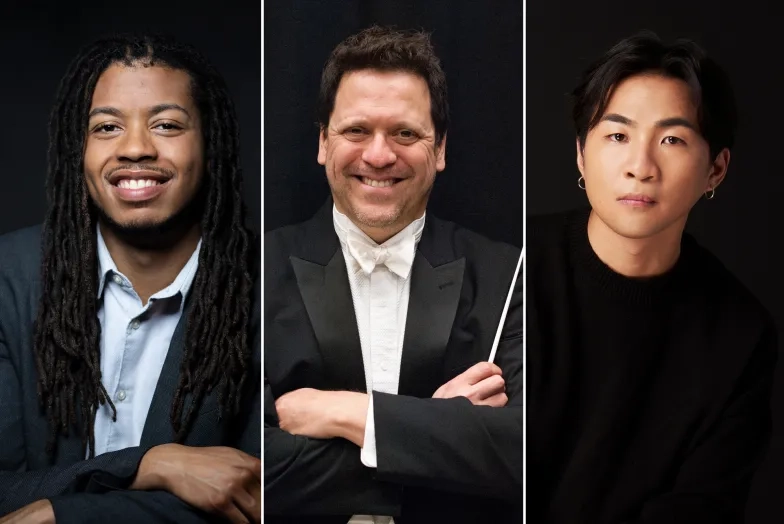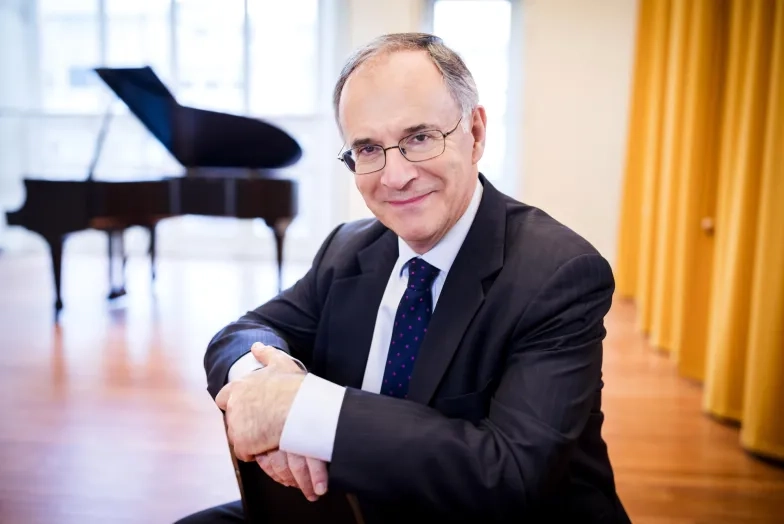Alumnus Scott Krijnen '05 Wins $20k for School
Scott Krijnen graduated from SFCM in 2005 with his master’s degree in cello performance, wearing many hats in the South Bay music community: soloist, chamber musician, conductor, artistic director, and teacher. This past year, Scott was recognized for his incredible dedication to music, his students, and the greater community with both the Richard Levin Orchestra Educator Award from the California Music Educators Association and the Comcast SportsNet Bay Area All-Star Teacher Award. While both awards earn “Mr. K” prestige in the education world, the All-Star Teacher Award includes $20,000 for the winning teacher’s school -- Castillero Middle School. Scott took time from his busy schedule to talk with us about his latest accomplishments, what he loves about his work as a community leader, and his philosophies towards music and education.
What drew you to teaching? Did you always want to teach?
Teaching has been fundamental to my life since a very young age. My mom is a music teacher and professional violist and my father is a tenor as well as a conductor of a variety of ensembles, both professional and community minded. I was always watching those closest to me share knowledge, excitement, and the joy of communicating through a beloved medium: music. As is typical with most adolescents, I was incredibly shy and awkward, and one day my mom had me sit next to a beginner to work through the problem together. Helping that student was incredible and gave me confidence, which made me feel proud and happy. Essentially from that moment on, teaching was something that I wanted to do and actively pursue.
With so much focus on language arts, math, and science in our public schools, music education is often perceived as a novelty, but you have quite a community at Castillero and Redwood Middle. Did you inherit that community in 2005 and what changes have you witnessed?
When I arrived at Castillero, I inherited about 40 students plus two beginning classes full of kids that had not filled out their elective form. We had about 65 working instruments, 45 short with the influx of new students. I started with four sections of orchestra but thanks to Castillero's supportive staff, administration, and a community that realizes that the arts are fundamentally important to the growth and well-being of the students, we were an ensemble with potential. Eleven years later, we have have six sections of orchestra with over 300 students and have raised over $100,000 to provide instruments and instruction.
My wife, Aryn Krijnen, and I now teach five sections of after-school orchestra to around 250 students at Redwood Middle, as well. When we first arrived, they had three sections and about 60 students. While this after-school model has grown with huge support from our Saratoga Music Booster Club, it would be far more beneficial to have a program in the day, without conflict from sports, homework clubs, tutors, lessons, etc. The students are highly motivated and have created a culture of excellence, and we continue to work in the community to better serve the needs of the students.
The most significant change in these schools is in the student body culture. I certainly teach the students how to read music and perform on their instruments, but we really focus on what it means to learn, what it means to be part of a community. We have some foundational concepts for our classroom culture. Be humble, be engaged, be present. Honor the work. Share your knowledge. Always your choice: choose to be great. Because of these principles, the students not only gain a sense of belonging and recruit others to join, but learn skills that cross all disciplines and, hopefully, gives them joy and a meaningful, engaged existence.
On top of your teaching load, you are also quite active in the San Jose music community. What other projects are you working on currently?
I am incredibly fortunate. In addition to teaching, I get to perform concerto and chamber music such as the Dvořák Cello Concerto with the Winchester Symphony, the Saint-Saëns Cello Concerto with the Silicon Valley Philharmonic, and chamber works by Beethoven, Franck, and Schumann with the Cal Arte Ensemble. I also work with San Jose State's summer music camp, guest conduct the Palo Alto Chamber Orchestra, collaborate with the San Jose Dance Theater, and conduct my civic orchestra, the Cambrian Symphony.
The Cambrian Symphony is incredibly special; I created it four years ago with the help of many good friends to bring back live music to the SJDT's performance of The Nutcracker in San Jose. This group is an absolute joy to work with and allows me to bring all of my educational philosophies into an adult setting, creating a dynamic and engaged ensemble experience. As of April, we are a 501(c) with a full season of performances starting with Keisuke Nakagoshi ‘06 performing Rachmaninoff's Piano Concerto No. 2 and have featured other SFCM alums in the past such as Ken Lin ‘06.
You won the CMEA Orchestra Educator Award and CSN Bay Area All-Star Teacher Award in the same year. How are each of these awards significant to you personally?
It has been a big year for recognition, and I am humbled by it, grateful for it, and overwhelmed with the level of support. Everyone works hard. Life is filled with inspired individuals who are impacting their world everyday, and I am so fortunate to have had hundreds of inspiring people in my life.
To receive the CMEA Orchestra Educator Award is a reflection of colleagues who helped guide me, teachers I had throughout my studies supporting me, and parents and students that pushed me to do everything I can with every moment I can.
With the CSN Bay Area All-Star Teacher award, it is a testament to what the power of community and the joy of sharing can accomplish. I truly believe that when given access and support, every child can discover the power of making a positive impact on those around them and carry that ideal into the world as they grow up and become adults. If I reflect on what is truly greater -- the recognition, the performances, or teaching -- the answer lies in the very first time a student gets introduced to music, the first sound they make, the first time their eyes light up by playing F#, E, and D, and knowing that this young person has the potential to impact so many others.
What would you tell current SFCM students considering music education?
That everyone at SFCM is in music education by default. I understand the question implies a life passing knowledge from one to another through institutions of learning or a private studio, but for me, the idea of education is lifelong, and so many of the qualities that make one successful as a performer will make one successful in education. As a chamber musician, you have to communicate and share ideas through constructive discourse; if you don't learn from one another, the ensemble struggles. When soloing with an orchestra, if you're not listening or treating the ensemble like chamber music, you no longer have a unified idea that connects with the audience. As a performer, you will teach whether through master classes, private studios, adjudications, presentations, appointments… It is a wonderful reality to share what you are most passionate about with others so they, too, can live a life where they love what they do and do it well. What is wonderful about SFCM are the unbelievable opportunities, incredible educators, and musicians to model after and then carry into the world. Be great, share your knowledge, and go practice.
You can follow Scott’s projects on Twitter & Instagram (@scottkrijnen), Facebook, and online at www.cambriansymphony.org



